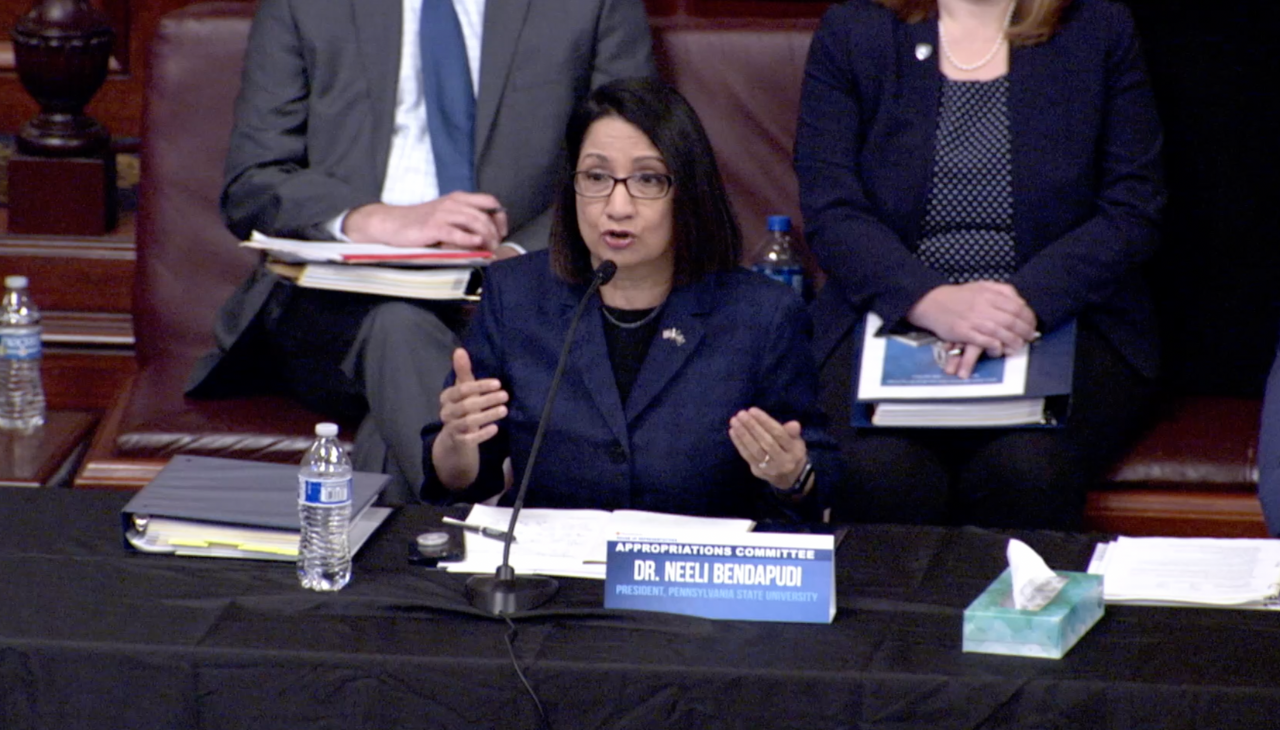
State-related universities discuss affordability, workforce readiness at PA House budget hearing
Presidents from four universities: TU, U. Pittsburgh, Penn State, and Lincoln answered lawmakers pressing questions, especially justification for funding growth
On March 21st, 2023, the presidents of Lincoln University, Penn State University, Temple University, and the University of Pittsburgh, appeared before the House Appropriations Committee. House Republicans focused on affordability, workforce readiness, and tax dollars spending.
AL DÍA covered the Pennsylvania House budget hearing and here are the highlights shared by local institution presidents.
State-related Universities
The hearing commenced by addressing Penn State, the University of Pittsburgh, Temple University, and Lincoln University, which would receive a 7.1% increase in state funding, a 5% increase under Gov. Josh Shapiro’s 2023-2024 budget proposal.
State Rep. Eric Nelson said the additional 5% was a “one-time side deal” with former Gov. Tom Wolf, adding that three universities: Temple, Penn State, and Pitt, ranked in the U.S. News top 10 costliest public schools in the country.
“68% of our students come from Pennsylvania, [and] 65% stay in Pennsylvania once they graduate. We are really a contributor to the economic engine of the region, of the state,” said Jason Wingard, President of Temple University. “We are really proud of and appreciative of the support the Commonwealth gives us so we can continue to satisfy our mission of making sure that education is accessible and high-quality for all residents and beyond.”
Dr. Wingard noted the enrollment decline, the increase in mental health challenges, and the crime rate affecting the region, including the fatal shootings of Everett Beauregard, a TU graduate student last year, and Officer Christopher Fitzgerald, a month ago.
Penn State President Neeli Bendapudi highlighted the University’s land-grant mission and its unique Commonwealth Campus structure.
“As the sole land-grant university for the Commonwealth of Pennsylvania, with our 24 campuses, we are accessible to really all Pennsylvanians,” Bendapudi said. “Ninety-six percent of the citizens of this commonwealth are within 30 miles of one of our locations. And I want you to know that across our Commonwealth Campuses, nearly 80% of the students we serve are Pennsylvanians.”
Rep. Ryan Warner asked whether they would commit to a tuition freeze if they received the 7% increase, but each president said they could not.
“At Lincoln, we’re 70% tuition-dependent, and so we are obligated for increases, inflation is through the roof, and so just to manage through the budget we could not do without a small tuition increase,” Lincoln President Brenda A. Allen said.
Warner noted he would not support Shapiro’s proposal to increase funding “without the universities being subject to our state Right-to-Know law and have an openness and transparency on how the money is spent.”
RELATED CONTENT
Challenges students face
Affordable education, student loan debt, and the impact academia poses on mental health were some of the issues addressed by Rep. Zach Mako, who asked all State-Related Universities to discuss their efforts to ensure students graduate in four years and also address mental health stressors associated with academia. Dr. Bendapudi said the focus needs to be on first-generation low-income students because it is more difficult for them to navigate an already complex system, to which the University of Pittsburgh’s Chancellor added, “affordability is not just driven by tuition. A lot of what we’ve been doing is growing our financial aid support for our students,” by doubling students that receive aid.
Dr. Wingard admitted that a large portion of TU’s enrollment are working students who require additional financial support to avoid additional debt and to be able to graduate within that four-year threshold.
“When you come from a first-generation background, you don’t have a lot of knowledge about how to be a good consumer of what educational enterprises offer,” Allen said. “For a Lincoln student who’s a Pennsylvania resident, that gap is usually about $6,000 to $7,000 a year. It doesn’t seem like a lot for people who have means, but for low-income families, $7,000 might as well be $70,000 in order to help them to fulfill their dreams.”
During the hearing, Rep. Elizabeth Fiedler asked Dr. Wingard the impact the strike had on Temple and what lessons he learned.
“Obviously when we have a strike at a school like Temple University, and we’ve seen other strikes at institutions across the country. It has a very demoralizing impact on us. We want to do what’s right for our students. We want to do what’s right for our workers,” said Dr. Wingard, who added Temple has “repair work” to do. It should be noted that Dr. Wingard submitted his resignation as Temple's president on Tuesday, March 28. The resignation will be official this coming Friday.
“For us to succeed as a state to draw more students to our institutions, we need to attract and retain workers at our institutions of higher education,” Fiedler said.
House Republican Key Takeaways
- As tuition costs continue to rise, House republicans believe state money should be used to reduce tuition.
- House Republicans will continue to push our State-related Universities to base their educational programs to benefit the economy of Pennsylvania. Degrees are needed to fill the jobs available.
- In order to alleviate student debt, House Republicans believe State-Related Universities step up to help students graduate in four years and control their costs.
- House Republicans believe State-Related Universities should be subject to full compliance with Right-to-Know laws.
Source: PA House Republican Caucus











LEAVE A COMMENT:
Join the discussion! Leave a comment.